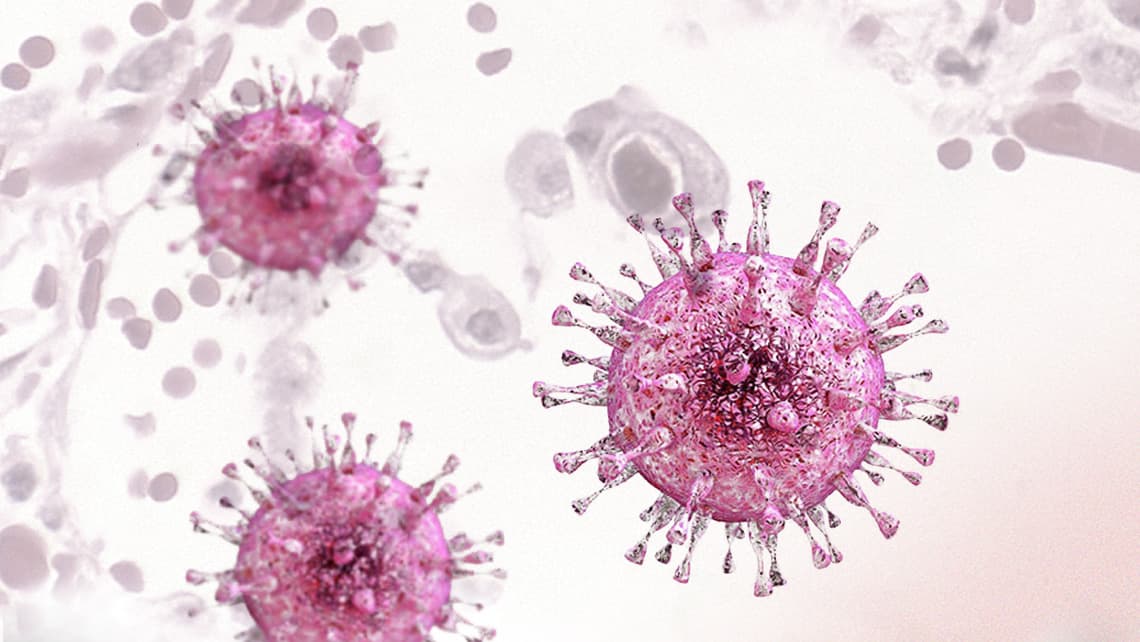
Cytomegalovirus: symptoms, transmission and treatment
Cytomegalovirus (CMV) is a virus from the family Herpesviridae. We also find the chickenpox virus, herpes simplex and the mononucleosis virus in this family.
Infection with CMV is very common since it is present worldwide and can affect anyone. On the whole, it is an infection which does not usually cause any serious health issues. Once the virus has infected a person, it will remain in that person’s body for the remainder of his or her life. In fact, it is usually inactive or latent for a long time and it does not tend to reactivate unless the person’s defence system (immune system) is affected. Most people who are infected by the virus and who do not have serious health issues do not, on the whole, have any symptoms which might cause them to believe that they are infected with CMV. People who do develop some symptoms may suffer from a high temperature, swollen lymph glands, muscle pain or tiredness.
However, in the case of babies infected with the virus during pregnancy or childbirth and in people with a weak immune system, it is considered to be a significant public health problem since it can cause serious illnesses.
The virus is often transmitted from person to person through direct contact with body fluids such as saliva, sperm, blood, urine and other secretions. CMV infection is not considered to be a sexually transmitted disease since it is not passed on through sexual intercourse alone. It may also be passed on through breast milk, in transplanted organs, during blood transfusions and from mother to child during pregnancy or childbirth.
When a woman becomes infected during pregnancy, it is highly likely that the virus will be passed on to the foetus. In this case, the baby is said to have congenital cytomegalovirus. Ninety percent of babies infected by the virus before birth are born free of the virus’ symptoms. However, the remaining 10% can be affected by disorders such as deafness, blindness, physical and mental disability and even death.
There is no treatment for curing and eliminating CMV, nor are there any injections which can be given in order to avoid infection. Therefore, diagnosis by means of a blood test is recommendable.
Within the field of assisted reproduction, it is important to detect viruses of this type, especially amongst donors. Instituto Bernabeu has the necessary technology in order to detect CMV. Our aim is to avoid possible transmission to embryos and future complications during pregnancy.
Dr Eva Garcia, biologist at IBBIOTECH, part of the Instituto Bernabeu group.
